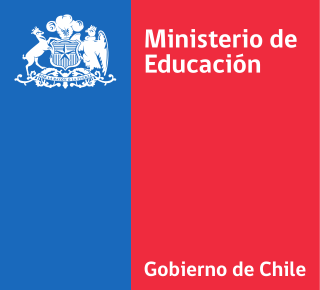Related Research Articles
An initial public offering (IPO) or stock launch is a public offering in which shares of a company are sold to institutional investors and usually also to retail (individual) investors. An IPO is typically underwritten by one or more investment banks, who also arrange for the shares to be listed on one or more stock exchanges. Through this process, colloquially known as floating, or going public, a privately held company is transformed into a public company. Initial public offerings can be used to raise new equity capital for companies, to monetize the investments of private shareholders such as company founders or private equity investors, and to enable easy trading of existing holdings or future capital raising by becoming publicly traded.

Chalcopyrite ( KAL-kə-PY-ryte, -koh-) is a copper iron sulfide mineral and the most abundant copper ore mineral. It has the chemical formula CuFeS2 and crystallizes in the tetragonal system. It has a brassy to golden yellow color and a hardness of 3.5 to 4 on the Mohs scale. Its streak is diagnostic as green-tinged black.
The weighted average cost of capital (WACC) is the rate that a company is expected to pay on average to all its security holders to finance its assets. The WACC is commonly referred to as the firm's cost of capital. Importantly, it is dictated by the external market and not by management. The WACC represents the minimum return that a company must earn on an existing asset base to satisfy its creditors, owners, and other providers of capital, or they will invest elsewhere.
Tuition payments, usually known as tuition in American English and as tuition fees in Commonwealth English, are fees charged by education institutions for instruction or other services. Besides public spending, private spending via tuition payments are the largest revenue sources for education institutions in some countries. In most developed countries, especially countries in Scandinavia and Continental Europe, there are no or only nominal tuition fees for all forms of education, including university and other higher education.
Flotation involves phenomena related to the relative buoyancy of objects.

An indenture is a legal contract that reflects or covers a debt or purchase obligation. It specifically refers to two types of practices: in historical usage, an indentured servant status, and in modern usage, it is an instrument used for commercial debt or real estate transaction.
QinetiQ is a multinational defence technology company headquartered in Farnborough, Hampshire. It operates primarily in the defence, security and critical national infrastructure markets and run testing and evaluation capabilities for air, land, sea and target systems.

Copper extraction refers to the methods used to obtain copper from its ores. The conversion of copper ores consists of a series of physical, chemical and electrochemical processes. Methods have evolved and vary with country depending on the ore source, local environmental regulations, and other factors.

Froth flotation is a process for selectively separating hydrophobic materials from hydrophilic. This is used in mineral processing, paper recycling and waste-water treatment industries. Historically this was first used in the mining industry, where it was one of the great enabling technologies of the 20th century. It has been described as "the single most important operation used for the recovery and upgrading of sulfide ores". The development of froth flotation has improved the recovery of valuable minerals, such as copper- and lead-bearing minerals. Along with mechanized mining, it has allowed the economic recovery of valuable metals from much lower-grade ore than previously.
The Formula One Group is a group of companies responsible for the promotion of the FIA Formula One World Championship, and the exercising of the sport's commercial rights.
Auto Trader Group plc, commonly known as Auto Trader, is a British automotive online marketplace and classified advertising business. It enables the buying and selling of new and used vehicles by private sellers and trade retailers. Auto Trader is listed on the London Stock Exchange trading under the ticker symbol AUTO, and is a constituent of the FTSE 100 Index.
Graham Love was the chief executive officer of the defence contractor, QinetiQ Group plc. He is a graduate of Cambridge University and a chartered accountant.

Education in Chile is divided in preschool, primary school, secondary school, and technical or higher education (university).The levels of education in Chile are:
A financial sponsor is a private equity investment firm, particularly a private equity firm that engages in leveraged buyout transactions.

World Channel, also branded as World, is an American digital multicast public television network owned and operated by the WGBH Educational Foundation. It is distributed by American Public Television and the National Educational Telecommunications Association and features programming covering topics such as science, nature, news, and public affairs. Programming is supplied by the entities, as well as other partners such as WNET and WGBH. It is primarily carried on the digital subchannels of PBS member stations.

The Big Table Group Limited, trading as Bella Italia, is a chain of over 90 restaurants offering meals inspired by Italian cuisine in the United Kingdom and Ireland. The chain is part of The Big Table, which also owns Café Rouge and Las Iguanas.
Publicly traded private equity refers to an investment firm or investment vehicle, which makes investments conforming to one of the various private equity strategies, and is listed on a public stock exchange.
Altarage is a term once commonly used in an ecclesiastical context to signify the revenue reserved for the chaplain in contradistinction to the income of the parish priest — it came to indicate the funds received by a priest from the laity when discharging a particular function for them, e.g., marriages, baptisms, and funerals. The term is largely obsolete, having been replaced by the more specific honorarium, stipend, or stole-fee.
A bought out deal is a method of offering securities to the public through a sponsor or underwriter. The securities are listed in one or more stock exchanges within a time frame mutually agreed upon by the company and the sponsor. This option saves the issuing company the costs and time involved in a public issue. The cost of holding the shares can be reimbursed by the company, or the sponsor can offer the shares to the public at a premium to earn profits. Terms are agreed upon by the company
An Initial exchange offering (IEO) is the cryptocurrency exchange equivalent to a stock launch or Initial public offering (IPO). An IEO is the process of digital asset procurement through an established exchange for the purpose of raising capital for start-up companies. Exchanges act as a middleman between investors and the startup, profiting from fees generated by services rendered during the due diligence process and funding phase. IEO's and initial coin offerings (ICO) share similar characteristics with, however, an IEO can be seen as an evolution from the ICO due to legal influence and an increase in financial regulations within the cryptocurrency market.
References
- ↑ A dictionary of business and management (5th ed.). Oxford [England]: Oxford University Press. 2009. ISBN 9780199234899. OCLC 277068142.